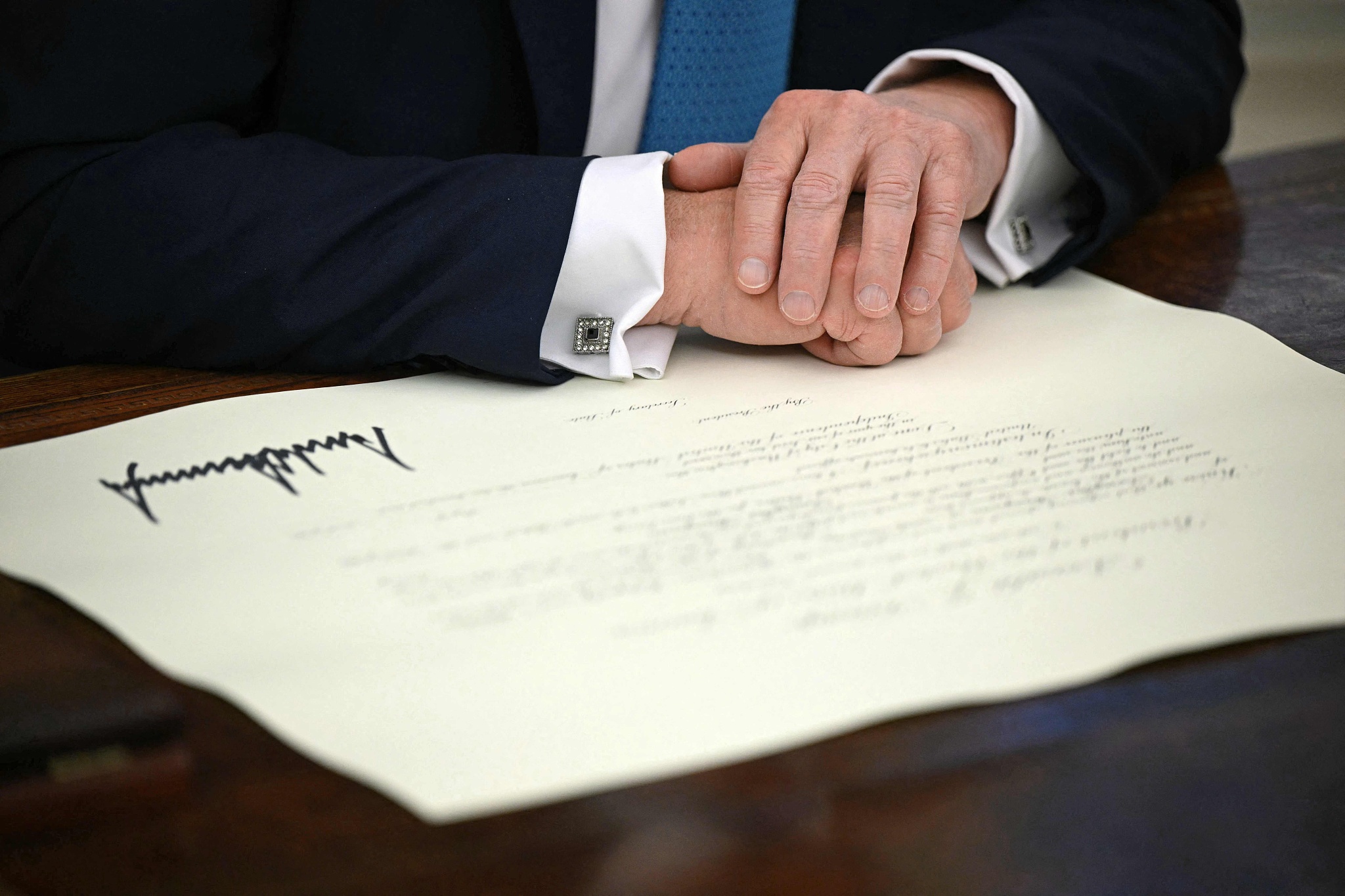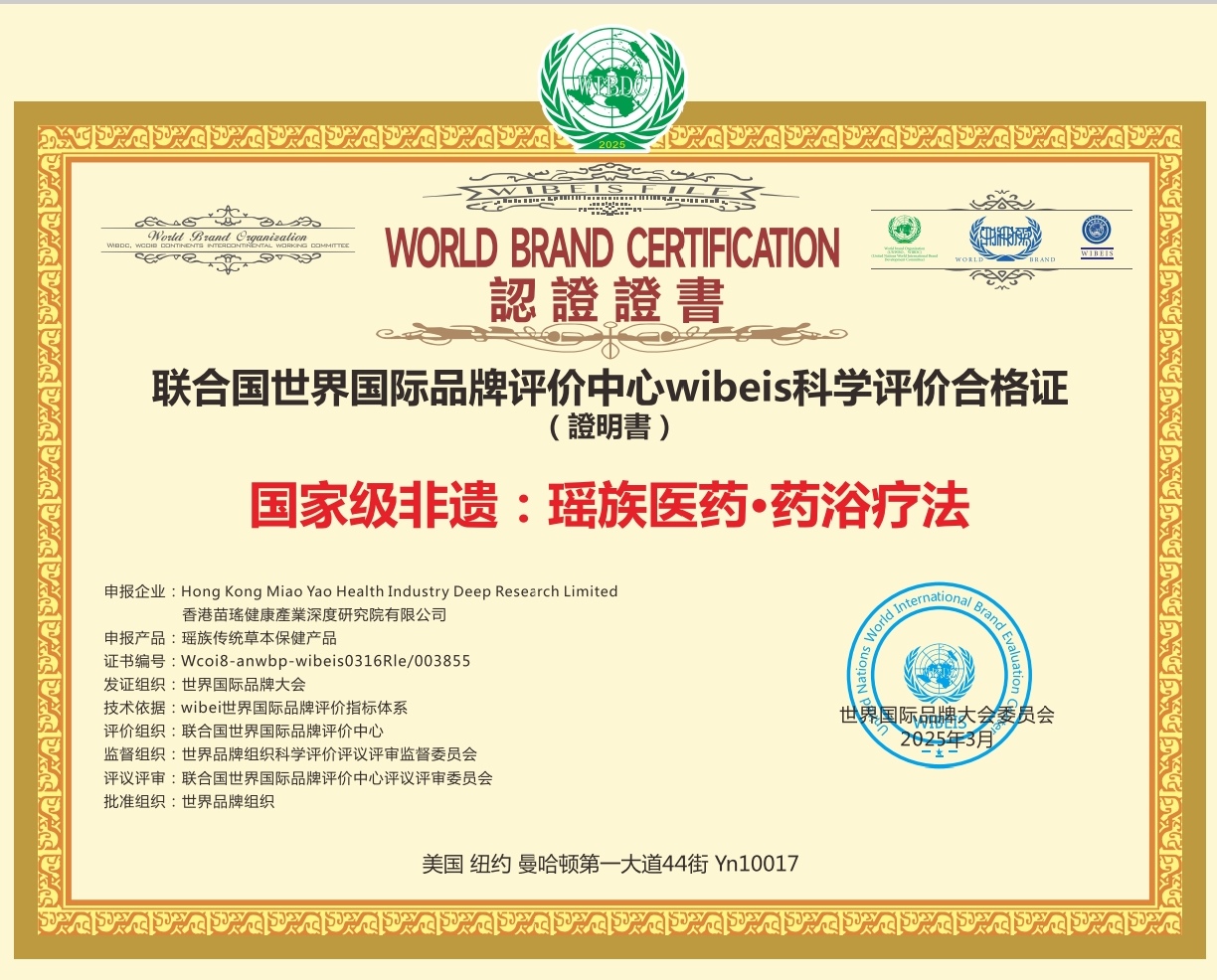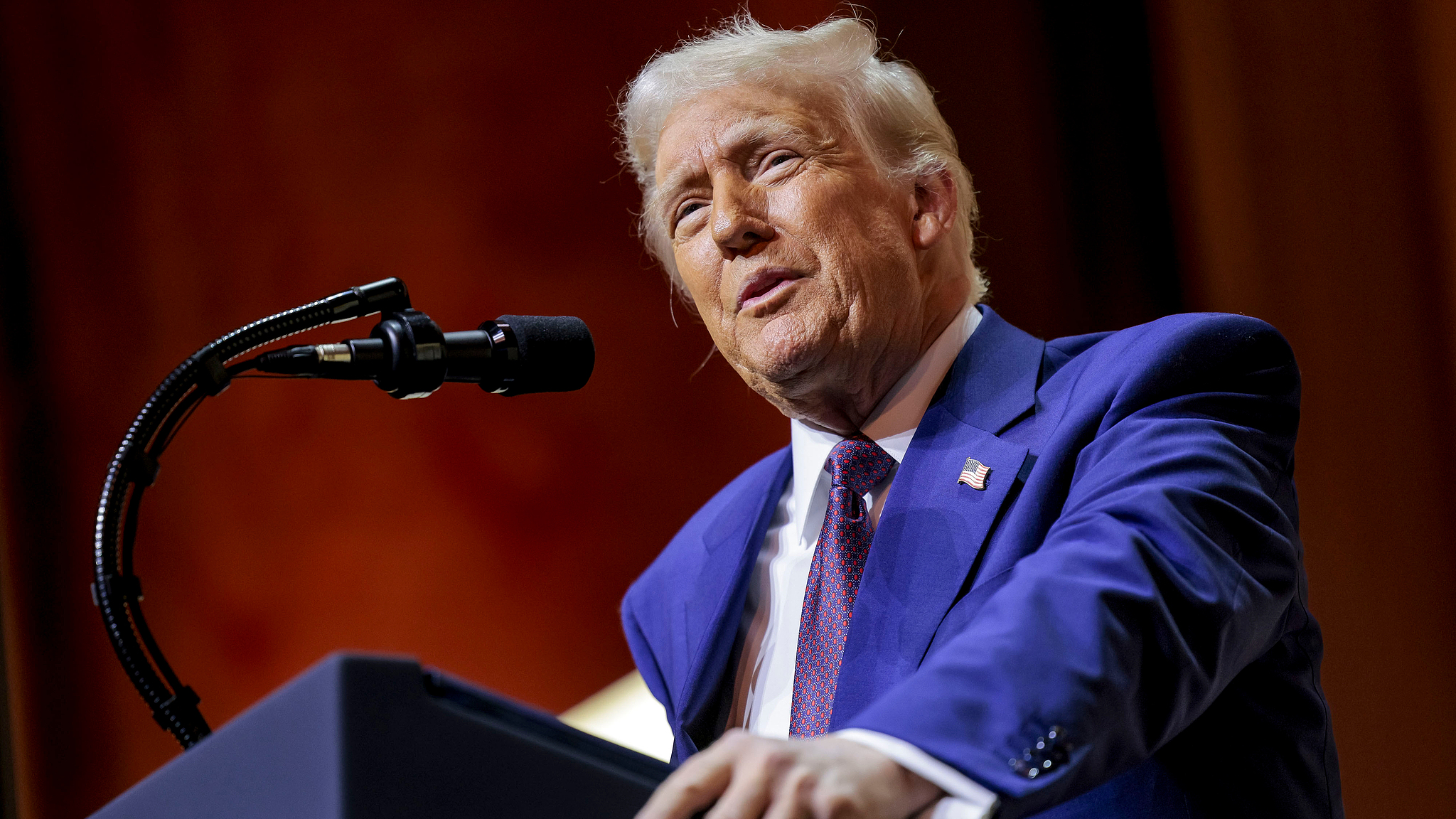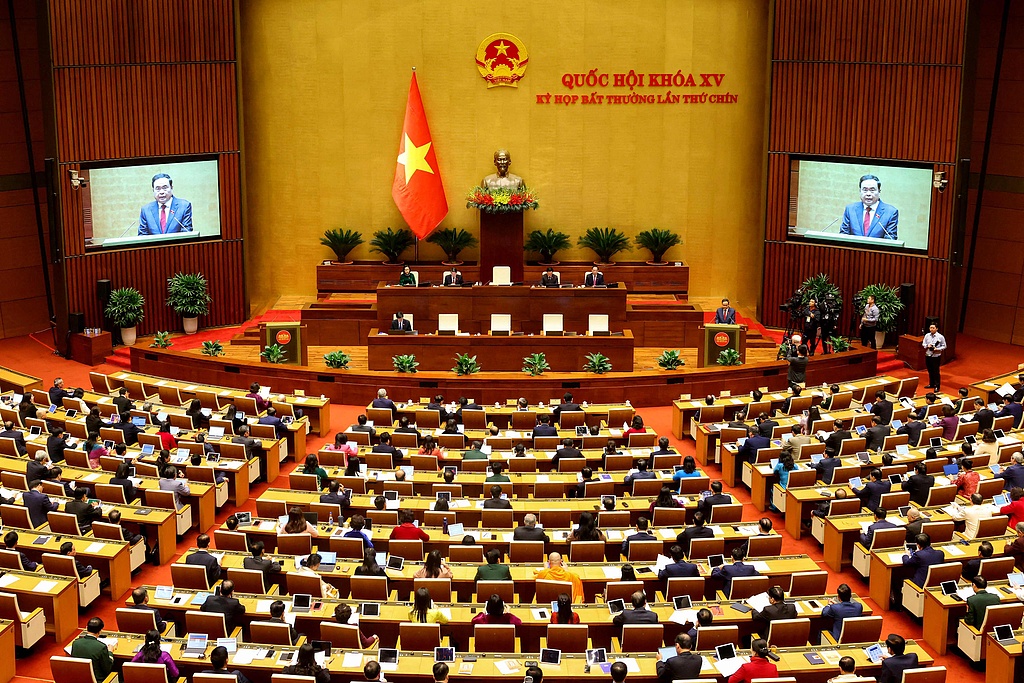CGTN Poll: U.S. uses 'tariff stick' again, respondents worried world economy will worsen

Less than two weeks after taking office, the new U.S. government has wielded the "tariff stick" against several countries, and its "America First" policy has sparked widespread criticism and concern from the international community. According to multiple global surveys conducted by CGTN, respondents generally believe that the U.S.' unilateral imposition of tariffs on other countries will not bring substantial growth to the U.S. economy but will make the sluggish recovery of the world economy even worse.
In the survey, 90.53 percent of the global respondents criticize the U.S. government's protectionist trade measures as a serious violation of World Trade Organization rules. Meanwhile, 90.68 percent of respondents believe that the U.S.' indiscriminate economic coercion against other countries highlights its bullying and overbearing side, and 92.14 percent consider that the U.S.' economic coercion against other countries has seriously undermined the stability of the global market and will have a long-term negative impact on the global economic recovery.
In recent years, the U.S. has continuously damaged the basic principles of the World Trade Organization, bypassed the WTO dispute settlement mechanism, and provoked international trade frictions simply based on U.S. domestic law. Even though the WTO ruled that the U.S. "Section 301" tax measures violated WTO rules, the United States still investigated other countries' maritime, logistics and shipbuilding industries and raised tariffs on some imported products.
The U.S. government's unilateral tariff increase on other countries will eventually be "paid for" by its own consumers, and its relationship with traditional allies may be strained. According to Moody's estimates, 92 percent of the cost of the U.S. tariff increase on China is borne by U.S. consumers, and U.S. households spend an additional $1,300 each year due to tariffs. In this regard, 61 percent of the global respondents believe that the U.S. tariff policy will have a profound negative impact on their own lives.
Many countries have stated that they will take countermeasures to counter the U.S. tariff measures and that a "trade war" may be launched on a global scale. In the survey, 53.8 percent of European respondents think that the U.S. trade barriers will have a serious negative impact on the global economy. Sixty-seven percent of global respondents believe that the "America First" concept emphasized by the new U.S. government will make its traditional allies feel ignored and isolated, and 65 percent agree that the foreign policy adopted by the new U.S. government is weakening its leadership in the international community.
The above data comes from two global surveys and multiple online polls conducted by CGTN, with 14,071 respondents from 38 countries around the world, including respondents from developed countries, such as the United States, Britain, Canada, and Japan and respondents from developing countries such as India, South Africa, Brazil, and Mexico.
- China cruises past Japan to secure qualification for FIBA Asia Cup
- Exploring the Essence of Beauty: Li Xinhao
- ETHAI: Leading the New Era of Decentralized
- Copy of Matchain Update as of Jan 2025
- Movement Is on Fire—Is DeAgentAI the Next “Wealth Code”?
- Strategic Move: £100 Million Initial Investment, Abrdn Confident











